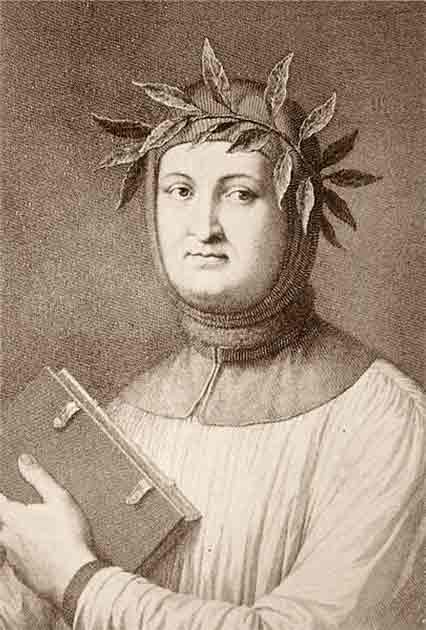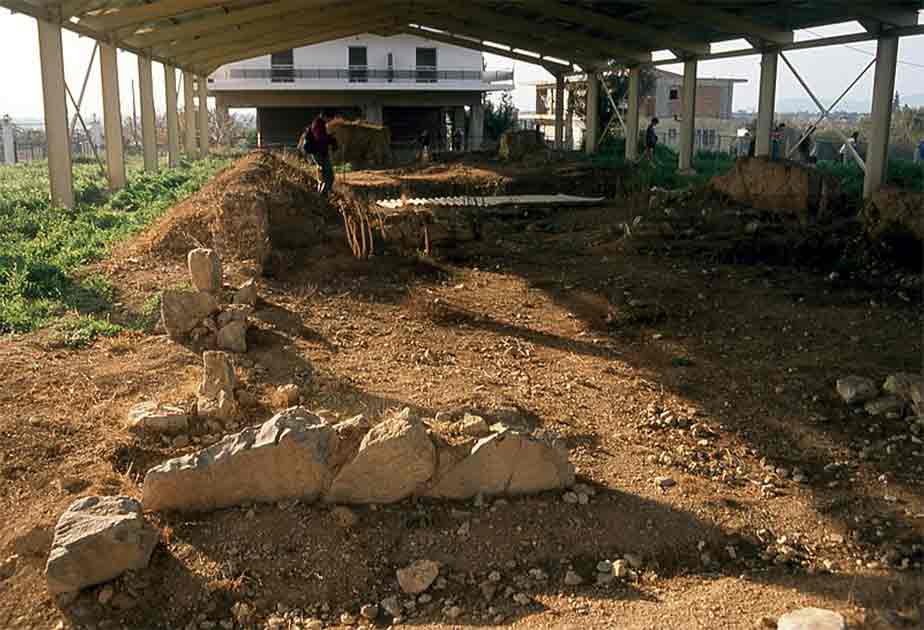It was the Italian scholar Petrarch who first coined the term “Dark Age” in the way we understand it. The 14th century polymath, lamenting what he perceived as a lack of cultural progress and literary quality since the fall of the Western Roman Empire, compared these times to the glory days of the past and found them wanting.
The concept of the “Dark Age” as he saw it was one of a Europe shrouded in cultural and intellectual darkness following the fall of the Roman Empire. The Classical Age was one of progress, culture, and civilization. Petrarch’s view of later European history was one where things were forgotten, where much that was good was lost.
Almost any modern reader looking to apply this dichotomy to the 21st century would conclude we are in an age of enlightenment. Our sophistication, our mastery of science and the natural world, the sheer sum of human knowledge we have amassed, should permit no other conclusion.
Right?
The Evolution of Petrarch’s Thought
Francesco Petrarch, often dubbed the “Father of Humanism,” was an early and pivotal figure in the development of the Renaissance. This radical rethink of humanity in Europe revered the classical past and aimed to revive its values.
Petrarch’s own writings, filled with nostalgia for the glories of Rome and Greece, often contrasted the grandeur of antiquity with what he saw as the cultural decay of his own time. He coined the concept of the “Dark Ages” to describe the period between the fall of the Roman Empire and his own present day, which he saw as a period of darkness compared to the light of classical knowledge.

But this is Petrarch looking at his world, and therefore considering what a “Dark Age” is cannot be limited solely to what Petrarch saw. For a start, modern historians generally agree that Petrarch was on to something with this idea, and there are definitely periods of cultural decline. And they also agree that we can apply his thinking to other periods of history: there has been more than one Dark Age.
The most famous of the others is the Greek Dark Age, which straddles the Mycenean kingdoms of the Bronze Age and the world of Homer to the later Hellenic Greece. For centuries after the Bronze Age Collapse from around 1200 BC Greece lost much of what it had been.
- All Alone with Your Thoughts: Solipsism, Reality and the Lonely Universe
- The Dying God and the Resurrected God: What is Religion, Really?
The great palaces, cities and kingdoms fell. Trade within Greece was reduced to a trickle of necessities. Trade between what remained of the Greek states and surrounding civilizations all but vanished. Their culture in ruins, the Greeks of the Dark Ages even forgot how to read, having to relearn the secret of writing far later from the Phoenicians.
And yet this new, agrarian subsistence reality was not without its glories. In a time without records many would look at the ruins that surround them and perceive a greater lost past, captured and preserved in their great stories and in the oral record. But they would not necessarily feel themselves impoverished.
The coastal town of Lefkandi, on the Greek island of Euboea, holds a settlement on a promontory known as Xeropolis, surrounded by Greek Dark Age cemeteries. Here the Greeks buried their dead with pomp and circumstance, and at the center of these remains lies something extraordinary: a hērōön, a hero’s grave.

Inside are two people, a man and a woman. The man has been cremated, his ashes wrapped in a linen cloth and held in a Cypriot amphora.
The woman however has not been cremated, but lies in her finery, surrounded by glittering artifacts made from precious metals. She wears a gorget from Babylonia which was a thousand years old when she was buried, but she herself cannot come from that time: the iron bits in the mouths of the four horses buried with the couple leave no doubt.
These were powerful and wealthy people. These people did not see themselves as living in a Dark Age, as struggling to survive as the knowledge of humanity went to ruin around them. Those who live in a Dark Age rarely perceive it themselves.
A Time of Impermanence and a Time of Forgetting
So, what was it that Petrarch pointed to when he saw his Dark Age, what is it that the Greeks lacked? There are two key aspects which both agree defines an Dark Age, one from those who lived at the time, and one from those who look back.
The first is that a Dark Age is a time of fragmentation when much is forgotten. As the great, cohesive societies crumble an emphasis is placed on survival and practicalities, or more accurately what those who control the societies see as practicalities.
So it is that religion often takes hold in a Dark Age, attracting people with its reassuring allure that there is a bigger plan, that temporary suffering with lead to eventual reward. Illiterate societies also look to the clerics to keep their records, and such records can be doctored to the enrichment of those in charge.
This leads to a concentration of wealth as those who hold the knowledge seek to keep it to themselves. Those who control the flow of information can decide who gets to see what, and therefore what the “truth” of our society is. The less objectively accurate this is, the more actual knowledge is lost.
It should also be noted that the loss of knowledge is linked to the second aspect which defines a Dark Age: such ages are “dark” from the perspective of those looking back. It is not that there was nothing great in such times, as the burial at Lefkandi proves. It is that we simply do not know what happened in those times. Records, if they were kept at all, have been lost.
- The Secret of Greek Fire: A Dark Age Flamethrower?
- (In Pics) Seven Civilizations lost in the Bronze Age Collapse
So how then does this apply to our current society? The concentration of wealth is easy to see, driven by capitalism and the intellectual property held by immortal, intangible corporations. This is not to say capitalism is “bad”, rather that it channels our widespread efforts into a ends which leave no permanent trace.
As for the loss of knowledge, our records are electronic, a state more ephemeral than at any point in history. Our understanding of the universe may be unrivalled but it could all be lost in a cataclysmic instant, taking both the structure and hierarchy of our world and much of our collective memory with it.

We also find ourselves more and more dependent on the tools we have created, using machines to make ever more sophisticated machines. So much of our society is dependent on this structure and the more complex we become, the more will be lost when we cannot replicate such complexity any more. We will lack both the knowledge to build our machines, and the machines to build them too.
Nor does our society have anything tangible to leave behind. The Shard in London, its tallest building and most imposing landmark, is designed to last for just 75 years, a prefab shelter of glass and metal built to earn money and then be torn down.
The reason Petrarch remembered the Romans is heavily linked to the fact they built in stone. Much of the tangible fabric of Roman society, their roads and population centers, remained after they had gone. None of the so called “barbarians” were seen as the equal of Rome, perhaps unfairly. But then, they built in wood.
Our modern world seems extraordinary, and in many ways it is. But would some future historian, looking back at our age from theirs, agree?
The records of our time will be forgotten, our impermanent buildings gone to dust. Our cultural achievements, compromised in their artistic endeavor like everything else by the need to be “profitable”, will be dismissed.
This was not a Golden Age, they would conclude. It was a Dark Age.
Top Image: Our impermanent society and ephemeral record keeping suggests we are living in a Dark Age. Source: Dan Marsh / Adobe Stock.
By Joseph Green
References
Britannica.com, 2024. Petrarch, Italian Poet. Available at: https://www.britannica.com/biography/Petrarch
Hirst, KK. Lefkandi: A Hero’s Burial in Dark Age Greece. Available at: https://www.thoughtco.com/lefkandi-greece-village-cemeteries-171525
Mark, JJ. Greek Dark Age. Available at: https://www.worldhistory.org/Greek_Dark_Age/